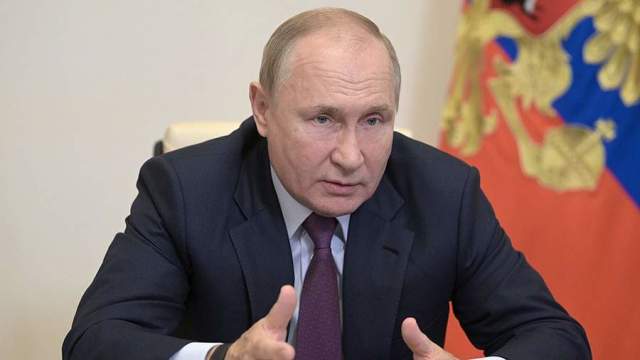On September 29, Russian President Vladimir Putin criticized the fulfillment of instructions for the long-term development of the space industry.
So, in April, the Government was instructed to prepare a set of appropriate measures, but this was not fully done. According to the Russian leader, delays in the implementation of the program can lead to risks.
"A number of decisions have already been made. For example, a program for the development of the Russian GLONASS navigation system until 2030 has been approved," the head of state said at a meeting on the development of the space industry.
At the same time, Putin stressed that "the entire package of measures with appropriate financing had to be approved by August 30, but this has not yet been done, which puts our plans for the development of the industry as a whole at risk."
The Russian leader addressed the participants of the meeting, asking them to report on the reasons for such a delay and when this work will be completed.
He also pointed to the possibility of extending the service life of the International Space Station (ISS) after 2024. At the same time, Putin stressed that it is important to take into account all the necessary factors when making such decisions.
"In accordance with the current agreements, the ISS flight should be completed in 2024, and despite the possible extension of this period, we must look beyond the horizon of the current decade, taking into account new challenges in deep space exploration, as well as national plans for infrastructure development and development of our vast territories, including the Arctic zone," the Russian president said.
On September 13, the head of the NASA manned flight program, Kathy Luders, noted that the organization's management expects to extend the operation of the ISS for at least 10 years. According to her, the American side is "working hard" on this issue.
On July 31, during a meeting of the Presidium of the Scientific and Technical Council, experts concluded that due to the aging of a significant part of the ISS equipment, further operation of the Russian segment of the station after 2024 creates additional risks.
It was proposed to complete the operation of the ISS by 2028 and create a national manned space complex in low Earth orbit — the Russian Orbital Service Station. On the same day, the head of ROSCOSMOS, Dmitry Rogozin, announced that he intended to present a report to Russian President Vladimir Putin on the prospects for creating a new station.
According to Rogozin, the new Russian orbital station will be as autonomous as possible and will receive elements of artificial intelligence. It is clarified that Russia intends to create a station whose efficiency will be several orders of magnitude higher than that of the ISS.

